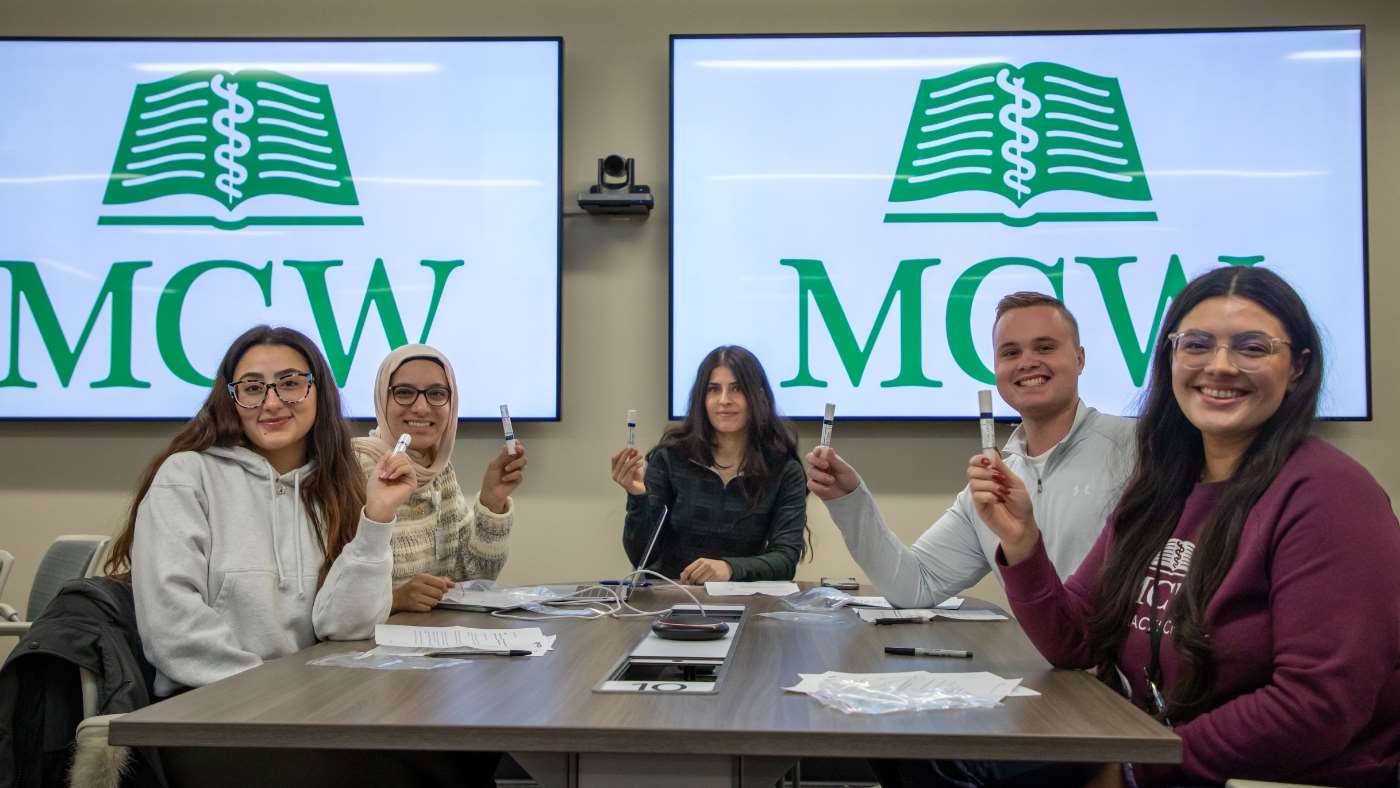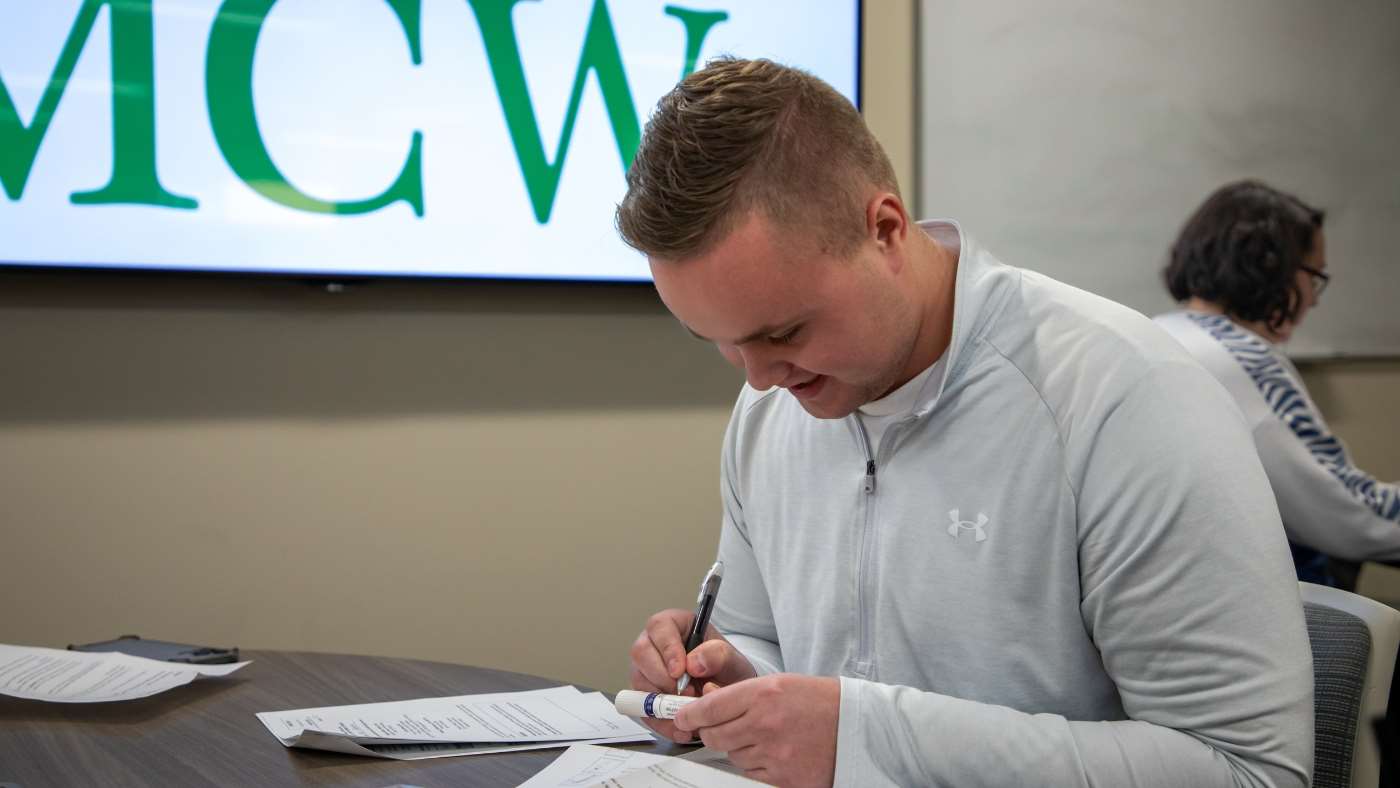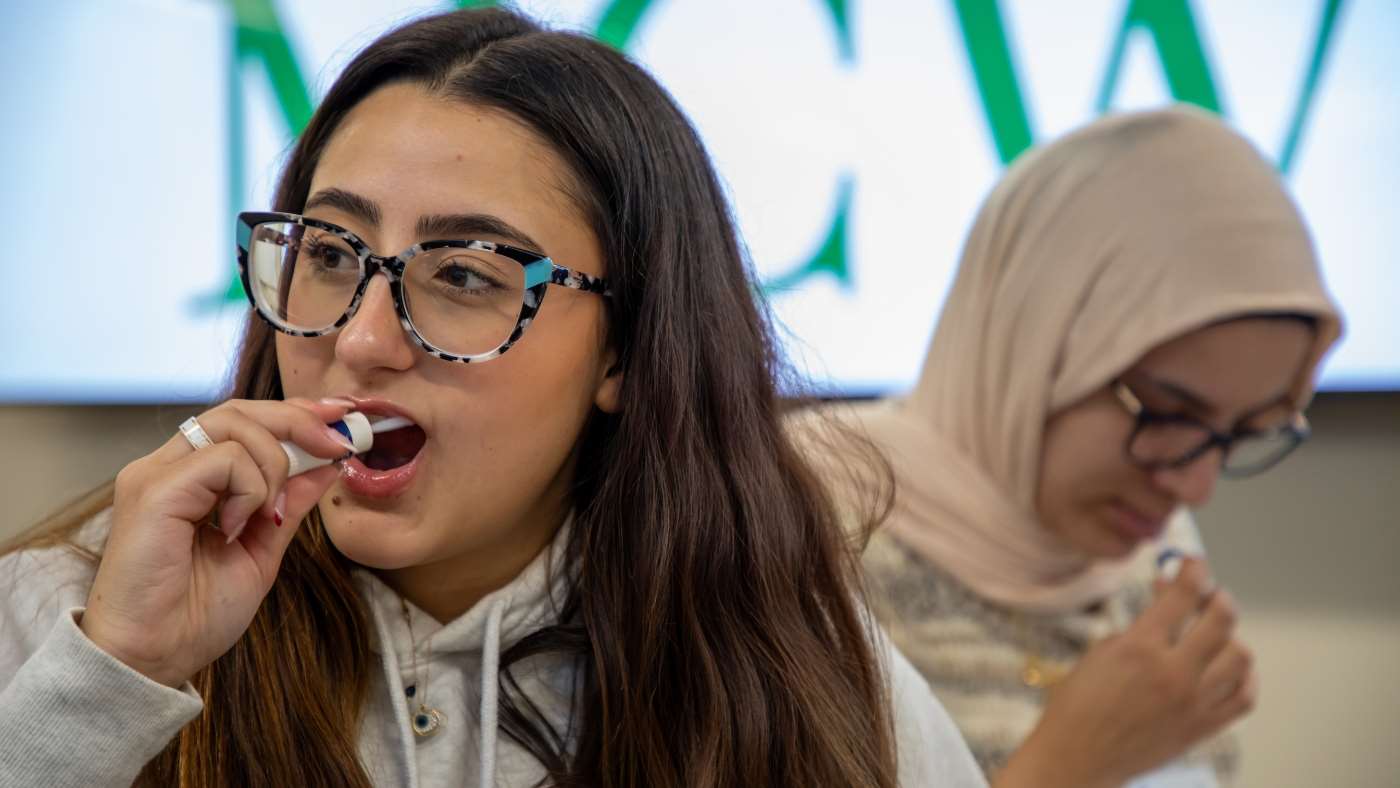MCW Provides Rare Pharmacogenomics Testing Opportunity for Pharmacy Students

When a medication isn’t working for a patient, pharmacists and physicians can adjust the dosage or find alternatives – yet this takes time, additional office visits and wasted medications. Pharmacogenomics testing, however, allows prescribing decisions to be made preemptively instead of relying on trial and error.
“When a medication is prescribed to a patient, the expectation is that it will work for every patient – but not every patient responds to the same dose and the same medication,” explained Ulrich Broeckel, MD, MCW professor of pediatrics and pharmacy, and also the founder and CEO of RPRD Diagnostics. “There are factors affecting drug response that we might normally think of, such as body weight or liver and kidney function – but there are also very distinct genetic factors playing a role.”
Some medications must be metabolized to an active form in the body to work, and some patients are genetically predisposed to either metabolize too quickly or not at all.
A pharmacogenetics test can assess whether there’s a genetic reason for a patient experiencing an adverse reaction to a medication, or an antidepressant not working effectively for a behavioral health patient. If a patient is prescribed multiple medications with complex drug-gene responses, pharmacogenomics tests can assist with establishing the proper doses. Finally, there’s preemptive testing: for example, children diagnosed with cancer may be given a comprehensive pharmacogenetic test to aid in efficient decision making throughout their long-term treatment plan.
Since its founding in 2017, the MCW School of Pharmacy has embraced the field of pharmacogenomics. To that end, first-year MCW pharmacy students have the rare opportunity to engage in personalized pharmacogenomics testing by having their own DNA tested. In the first week of their principles of drug action and pharmacogenomics course, students complete a buccal sample by swabbing the insides of their cheeks. Weeks later, after learning the foundational concepts required to interpret their results, students then explore how their genes may affect their respective responses to certain medications.
Thanks to a partnership with RPRD Diagnostics (located close to the MCW-Milwaukee campus), pharmacy students opting to participate in the personalized testing can discover potential issues they may have with metabolizing certain medications. They also are invited to visit the RPRD Diagnostics laboratory to understand the expertise and infrastructure required to analyze each saliva sample and the process required to generate an actionable pharmacogenomic test result. Several students have returned in their third (and final) year of the MCW PharmD program for six-week rotations under the tutelage of Dr. Broeckel, who has a co-appointment as a faculty member in the MCW School of Pharmacy.
The School of Pharmacy conducts attitudinal surveys of the students before and after the testing process. “In 2021, we published a study in which we found that engaging students in testing their own DNA improved their knowledge, interest and confidence in pharmacogenomics and its incorporation in their future pharmacy practices,” said George E. MacKinnon, III, PhD, MS, RPh, founding dean of the MCW School of Pharmacy. “Having a discipline that is ready to assist in this area is critical in healthcare,” he adds.

After receiving their test results, students in the Class of 2026 reflected on what they learned. “Let’s say the doctor told you that you have high blood pressure. The medication you’re prescribed has a certain chance of being the medication that will actually help you – but it takes time to determine that,” said Owen Zaskowski. “With pharmacogenetics testing, we’re able to skip that whole process, understand what works for you and get it right. It’s incredible how much time can be saved, plus we’re able to avoid certain toxicities you may have.”
Sukna Sawah explained that one of the genes that was tested had a known pharmacogenetic association with a medication that her mother takes daily. Although it works for her mother, Sawah’s test results showed the medication would not be effective on her.
“I think pharmacogenetics testing is a revolutionary change,” said Sawah. “We just swabbed our cheeks 30 times to get all the genetic information that was needed. I think it’s something that’s very accessible and easy to obtain, we just need to implement it so that more people can learn how they metabolize and tolerate medications.”

As outlined in guidelines by the Clinical Pharmacogenetics Implementation Consortium (CPIC) – an entity in which Dr. Broeckel has been involved for the past decade – a physician may recommend a pharmacogenomics test for patients taking medications with known pharmacogenetic associations. A recent publication from the MCW School of Pharmacy demonstrated the magnitude of patients that may benefit from pharmacogenomics testing. Reviewing 845,518 electronic medical records, the study found more than half of patients (56.9 percent) had medication that were CPIC-actionable. This work helped to lay the foundation for the pharmacogenomics testing processes, physician support strategies and pharmacist workflows to optimize outcomes in this arena. As it is a growing and informative field, pharmacogenomics testing may be offered soon at pharmacies nationwide.
While personalized pharmacogenomics tests are not widely available to the public, individuals can learn more about their DNA through the All of Us Research Program. The National Institutes of Health initiative aims to study one million or more people in the U.S. based on the interaction of biology, environment and lifestyle. After giving a blood or saliva sample, participants can choose which results they want to receive, ranging from one’s genetic ancestry and traits to health risks and medication response.


